Title: Explaining Why Muscles Feel Sore after Workouts for Kids
Meta-description: Discover why muscles can feel sore after workouts for kids and how to alleviate the discomfort. Get insights into the causes and helpful tips to ensure a safe and enjoyable fitness routine for your little ones.
Introduction
As parents, we often witness our kids experiencing muscle soreness after engaging in physical activities or workouts. It can be quite concerning, especially if they are new to exercise. In this article, we will delve into the reasons behind this discomfort and provide valuable insights on how to manage it effectively. So, let's dive in and explain why muscles are sore after workouts for kids!
Causes of Muscle Soreness
1. Microscopic Muscle Tears
- Intense physical activities, such as workouts, can cause microscopic tears in the muscle fibers.
- These tears occur when the muscles are subjected to unfamiliar or strenuous movements.
- The body's natural healing process is triggered, leading to muscle growth and strength development.
2. Lactic Acid Buildup
- During exercise, the body produces lactic acid as a byproduct.
- When lactic acid accumulates in the muscles, it can cause a burning sensation and soreness.
- This is particularly
Why do people like being sore after a workout?
The acknowledgement that we've performed our best, linked with achievement, accomplishment, satisfaction and improvement to physical and mental health makes those aching thighs and tight biceps a pleasant pain. Some pain, however, isn't bearable.
Is it good to still workout when sore?
The logical question: Should you be pushing through such soreness or resting your muscles. "Working out when sore is okay as long as it isn't affecting your movement to the point where it's causing you to compensate and do something in a way that's unsafe," says Dr. Hedt.
Am I supposed to be sore after every workout?
Believe it or not, soreness isn't synonymous with building muscle. “You do not have to have muscle soreness to build muscle or increase your fitness level,” says Vardiman. You might feel tight or tired, but not particularly sore after you work out.
Why do our bodies get sore after exercise?
Here's how: Acute muscle soreness is usually felt immediately after you're done exercising. It's caused by a buildup of certain substances within your muscle, such as lactic acid, during high-intensity exercise. This type of muscle soreness resolves quickly — usually within a couple of hours.
Why does soreness feel so good?
It's a post-pain rush similar to the high of morphine or heroin, which also bind to the brain's opioid receptors. Meanwhile, the pain of intense exercise also causes a spike in another of the body's painkillers, anandamide.
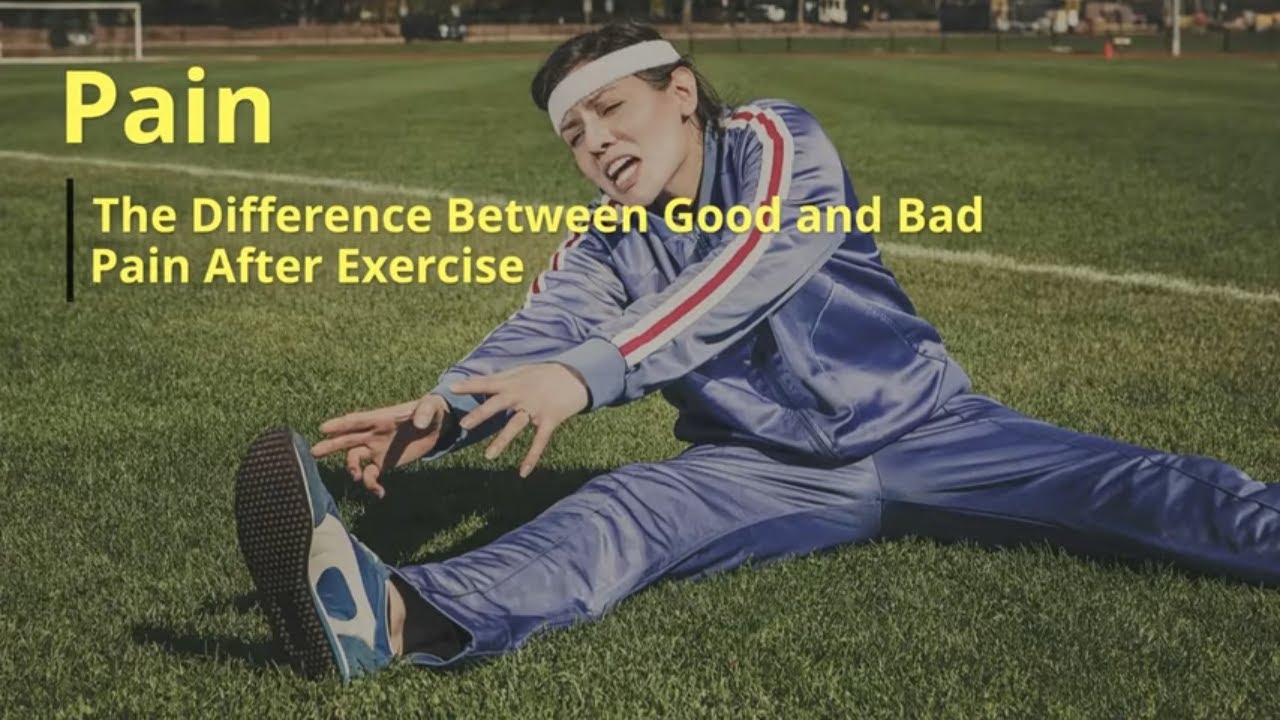
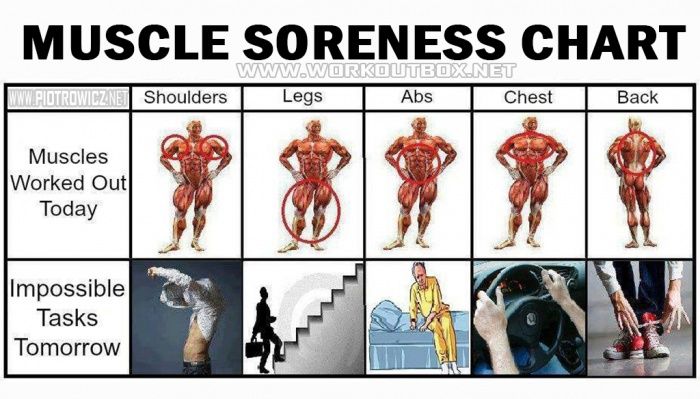
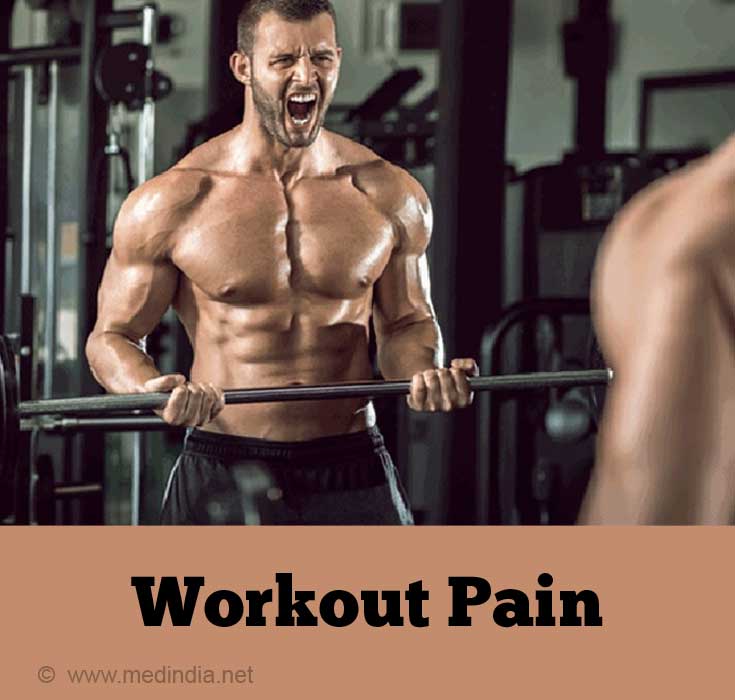
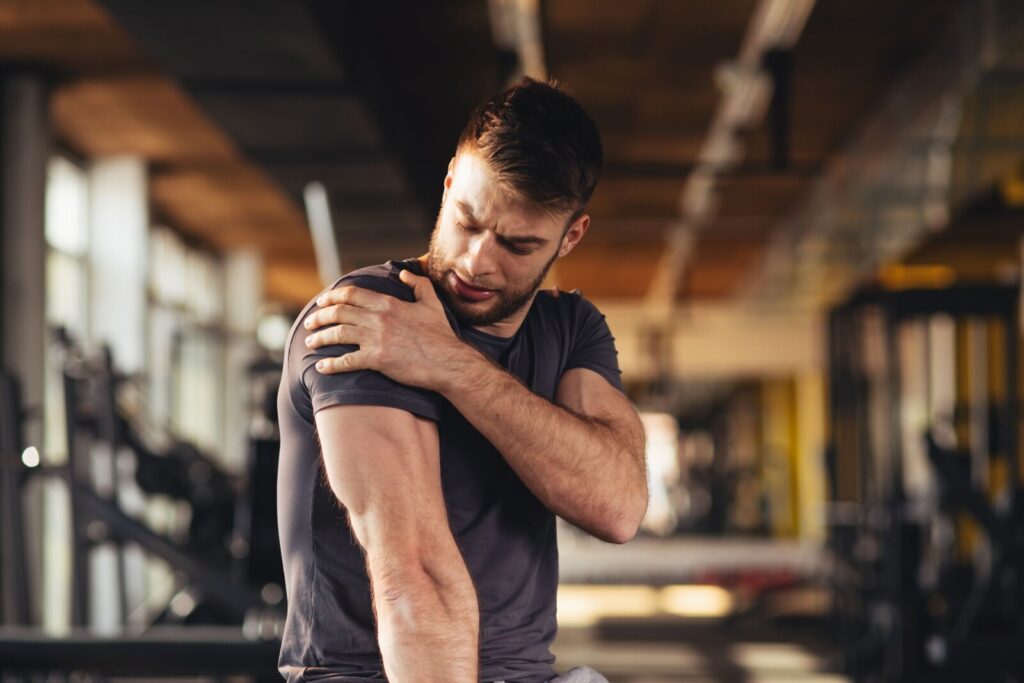
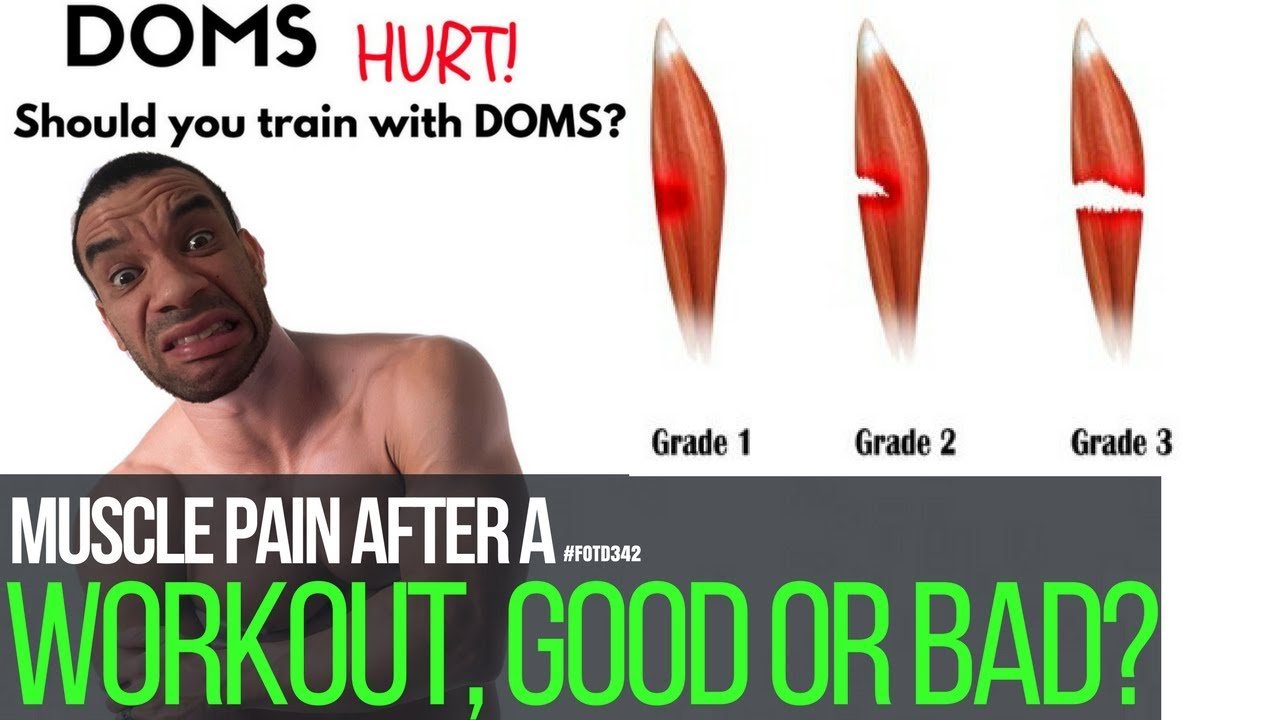
Is muscle soreness ok?
— The Endurance Physio (@theEndurancePT) October 26, 2023
Here’s a regular Q I get asked, and in truth, it’s a tough one to answer.
Muscle soreness or DOMS (delayed onset muscle soreness) can be expected after intense or unaccustomed bouts of exercise.
For many endurance athletes it can be present when moving… pic.twitter.com/mtGXrSGeYh
Why does it feel good to rub sore muscles?
Massages feel good because they release “feel-good” endorphins into the body, similar to a runner's high. They can also feel good because the brain releases oxytocin which is a natural chemical that reduces pain and can serve as an antidepressant.
Frequently Asked Questions
Is DOMS a good thing?
Believe it or not, it's actually a good thing - the soreness is a sign that your fitness is progressing. You've probably heard the old adage 'no pain, no gain'. This is because when you exercise, you're causing micro muscle tears, which your body will repair to build and strengthen your muscles.
Why do my muscles feel good after working out?
Research has shown that endorphins rise an hour after exercise. And this post-exercise endorphin release helps relieve pain, reduce stress, and boost your overall sense of well-being, Paulvin says.
Why do my muscles look better after a workout?
This surge of fluids causes your muscle cells to swell up, making your muscles look larger than usual. When you get a muscle pump, it might feel like your muscles are "full," in a sense. Read more: Cardio before or after weight lifting?
Why do I feel so happy after working out?
Endorphins also trigger a positive feeling in the body, similar to that of morphine. For example, the feeling that follows a run or workout is often described as "euphoric." That feeling, known as a "runner's high," can be accompanied by a positive and energizing outlook on life.
Why do muscles get sore when working out?
"The extra load placed on your body during exercise creates tiny microtears in your working muscle," explains Murray. "These microtears are normal. In fact, they're necessary for muscle growth. But these microtears are also what lead to soreness."
Does being sore mean muscle growth?
Believe it or not, soreness isn't synonymous with building muscle. “You do not have to have muscle soreness to build muscle or increase your fitness level,” says Vardiman. You might feel tight or tired, but not particularly sore after you work out.
Does being sore indicate good workout?
So, are sore muscles after a workout really a good sign? You can still have an effective workout even if you don't experience DOMS after. Yes it's a good indicator to see if you've pushed yourself to do more and perform better, but it doesn't necessarily mean you've had an effective workout.
Why do guys get hard after working out?
Working out affects your hormones.
"This increases the blood flow to your reproductive organs, which ignites your libido." A rush of testosterone during exercise not only leads to increased arousal in men—it affects women, too.
Why might an athlete experience sore muscles after a workout?
The acute muscular stress causes small-scale damage to the muscle fibers, which we normally feel anywhere from 24-72 hours after exercise. Believe or not, your body doesn't like to feel sore. That's why, after intense physical activity, your body begins the process of repairing the muscle damage.
How does your body get sore after a workout?
"The extra load placed on your body during exercise creates tiny microtears in your working muscle," explains Murray. "These microtears are normal. In fact, they're necessary for muscle growth. But these microtears are also what lead to soreness."
Is it good to play through soreness?
The logical question: Should you be pushing through such soreness or resting your muscles. "Working out when sore is okay as long as it isn't affecting your movement to the point where it's causing you to compensate and do something in a way that's unsafe," says Dr. Hedt.
What causes training soreness?
Soreness is caused by microtears or minor inflammation in your muscles. That might sound alarming, but in reality it's a good thing because it prompts your muscles to heal and adapt, which strengthens them.
FAQ
- How do athletes deal with muscle soreness?
- Some athletes swear by compression garments. These special socks or leggings help improve blood flow to the legs, reduce inflammation, and speed recovery. Other athletes submerge their bodies in an ice bath to reduce muscle soreness and inflammation after a hard workout session, game, or competition.
- What does it mean when muscle is tender?
- Typically, muscles are tender to the touch or burn slightly with movement. “During exercise, we fatigue our muscles, and the effects usually aren't felt until a day or two afterward,” says Baer. “Micro tears in the muscle occur during exercise, which is what causes the dull aches, soreness and muscle weakness.
- Does soreness indicate a good workout?
- Turns out, it's mostly in our heads that we should feel sore after a workout. The truth is, even if you're sore after a workout that doesn't necessarily mean that it was an effective or efficient session. And just because you aren't sore, that doesn't mean your workout wasn't effective or efficient.
- What does sore mean in workout?
- Acute muscle soreness is that burning sensation you feel in a muscle during a workout due to a quick buildup of the buildup of metabolites during intense exercise. It usually disappears as soon as or shortly after you stop exercising. Read on to learn more about DOMS, including symptoms, causes, treatment, and more.
- Why are muscles tender after working out?
- "The extra load placed on your body during exercise creates tiny microtears in your working muscle," explains Murray. "These microtears are normal. In fact, they're necessary for muscle growth. But these microtears are also what lead to soreness."
- What does a tender muscle feel like?
- Muscles are tender to touch, tired, or you have a burning feeling while exercising. Your muscles may feel a dull ache, tight, and achy feeling when you try to use them. This may also be present at rest but is more common when you try to use them. Pain causes an ache or sharp pain at rest or pain when exercising.
- Why does hitting sore muscles feel good?
- This sensory nerve releases a chemical cocktail of wellness into your bloodstream. Pressing on this nerve directly triggers the release of acetylcholine. This chemical messenger not only changes the way you experience pain but also activates pathways in the brain responsible for endorphin release.
- Is being sore a good thing after working out?
- On the other hand, there's “good” soreness, also known as delayed onset muscle soreness (DOMS). DOMS usually occurs the day or two after a workout. “Your workout can still be effective if you're not sore afterward,” says Battle. “But in general, the next day, you want to feel like your muscles got worked.”
- Why do humans get sore after working out?
- The acute muscular stress causes small-scale damage to the muscle fibers, which we normally feel anywhere from 24-72 hours after exercise. Believe or not, your body doesn't like to feel sore. That's why, after intense physical activity, your body begins the process of repairing the muscle damage.
- Can I workout with muscle soreness?
- The logical question: Should you be pushing through such soreness or resting your muscles. "Working out when sore is okay as long as it isn't affecting your movement to the point where it's causing you to compensate and do something in a way that's unsafe," says Dr. Hedt.
- How do I not get sore after working out?
- How to relieve sore muscles after a workout
- Get moving. Believe it or not, one of the best ways to reduce muscle soreness is to get them moving.
- Be sure to warm up.
- Progress slowly into a new exercise program.
- Soak in a salt bath.
- Take a pain reliever.
- Make time for recovery.
- Try a split-day routine.
Why does workout pain feel good
| Do sore muscles burn fat? | Conclusion. Sore muscles may not directly burn a significant amount of calories, but they are a sign that you have challenged your muscles and stimulated muscle growth. While soreness itself does not guarantee weight loss, it can indirectly contribute to your overall fitness and weight management goals. |
| Why does soreness feel good after workout? | These micro-tears trigger your muscles to grow and overly compensate for the activity you've just put them through - so they regenerate, creating new muscle fibre that makes us stronger. Another reason why we get sore when we exercise is due to an increase in our blood flow which can cause some fluid inflammation. |
| Why do you feel good after a hard workout? | Running, doing a hard workout, playing a sport or any exercise at all that increases our bodies stress response has the ability to make our brains release endorphins. The endorphins have the ability to travel through our neural networks as a neurotransmitter. |
| Should I still workout if my muscles are sore? | It is generally safe to work out when sore. However, overtraining can lead to muscle damage or injury. Generally, soreness due to exercising is not a cause for concern, and people can often continue doing physical activity. |
| Why do I get sore so easily after working out? | Acute muscle soreness is usually felt immediately after you're done exercising. It's caused by a buildup of certain substances within your muscle, such as lactic acid, during high-intensity exercise. This type of muscle soreness resolves quickly — usually within a couple of hours. |
| Are you supposed to be sore after every workout? | "Muscle soreness can be a deterrent to exercising, but it's temporary and the more you exercise, the less you should feel it. This is why staying active is so important. Usually, those who stay active aren't going to get sore as much." |
| How do you prevent being sore after working out? | How to reduce muscle soreness after exercise
|
| Why am I never sore after working out? | If you're consistently not sore, that could indicate that you're not pushing yourself enough. When you exhaust your muscles, you'll see better results. To increase the challenge, up the amount of weight you lift or the number of reps you perform. The last few reps should be challenging to do with correct form. |
| Does soreness mean you're building muscle? | Hear this out loudPauseBelieve it or not, soreness isn't synonymous with building muscle. “You do not have to have muscle soreness to build muscle or increase your fitness level,” says Vardiman. You might feel tight or tired, but not particularly sore after you work out. |
| Is it normal for your abs to hurt 2 days after working out? | Hear this out loudPauseDelayed-onset muscle soreness is a normal response to working your muscles. Usually, it peaks 24 to 48 hours after a workout before gradually easing, then disappearing entirely in another day or so. But if you experience sudden, sharp, or long-lasting pain, check with your doctor. |
| Is it normal to be so sore you can't walk? | Hear this out loudPauseMuscle soreness should not last longer than five days. Seek medical attention if the pain doesn't subside after a week, the injured area feels numb, or you are unable to walk or move your arms or legs. These symptoms could indicate a bigger issue, such as damage to your joints or muscles. |
- How can I speed up my muscle recovery?
- Hear this out loudPauseStress can cause your recovery time to be longer. Quality sleep, passive and active recovery, massage, foam rolling, compression garments, plus hot and cold therapies are all good for muscle recovery. Macro eating and good hydration will give you the necessary nutrients for a faster recovery.
- When do sore muscles hurt the most?
- "Typically, muscle soreness peaks around day three and starts diminishing afterwards. If your soreness persists beyond three days, it means you overdid it — you pushed your muscles a little too hard. But, prolonged muscle soreness can also be a sign of an injury," warns Murray.
- What makes your muscles feel sore during strenuous activity?
- Lactic Acid Buildup Causes Muscle Fatigue and Soreness. Anyone who has pushed themselves through an intense workout will be familiar with “feeling the burn” — that sensation of fatigue and pain that sets in when you subject your muscles to lifting heavy loads repeatedly or sprinting all-out.
- What are sore muscles from working out?
- Sore muscles after exercise Feeling your muscles ache or stiffen for a few days after exercise is normal and is known as delayed onset muscle soreness (DOMS). It can affect people of all fitness levels, particularly after trying a new activity or pushing yourself a bit harder than usual.
- What muscles do athletes hurt the most?
- The largest portion of muscle injuries occur during sports activities, corresponding to 10 to 55% of all injuries(12). The muscles most commonly affected are the hamstrings, quadriceps and gastrocnemius. These muscles go across two joints and are more subject to acceleration and deceleration forces13, 14.
- Why do legs get more sore than upper body?
- Your legs are made up of very large muscles, much bigger than your arms. Because these muscles are larger, they require more oxygen from the body when they are stressed.
- Why does muscle pain feel good?
- For a start, all pain causes the central nervous system to release endorphins – proteins which act to block pain and work in a similar way to opiates such as morphine to induce feelings of euphoria.
- Why is working out sore good?
- During exercise, the fibers within muscles stretch and experience microscopic tears. This causes soreness, stiffness and overall fatigue. During the healing process, your body builds those muscles up, creating increased strength.
- Is it good to have pain in the gym?
- Good pain will feel dull or achy, and will occur after exercise. This is actually a good sign that your muscles are becoming stronger. Massage and stretch your muscles, or soak in a hot bath. Bad pain is sharp and may occur during exercise, or in the joint after exercise.
- Why does stretching sore muscles feel so good?
- The bottom line Stretching tends to feel good because it activates your parasympathetic nervous system and increases blood flow to your muscles. It's thought that stretching may also release endorphins that help to reduce pain and enhance your mood.
- Do muscles really get knots?
- Muscle knots are often caused by poor posture and inactivity. Practicing good posture and engaging in regular physical activity may help prevent muscle knots. Many knots develop from repeated muscle trauma, so a person may wish to engage in different activity types to prevent overuse of the same muscles.
